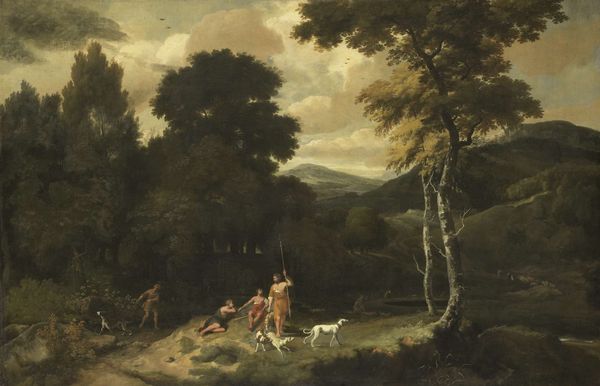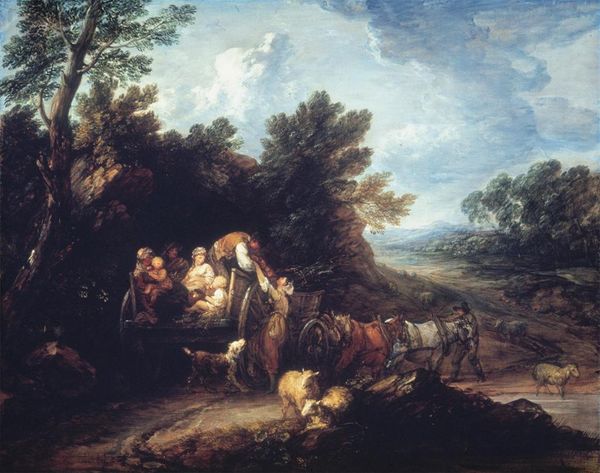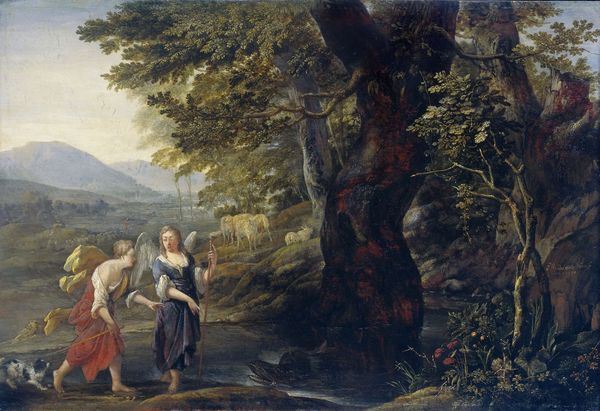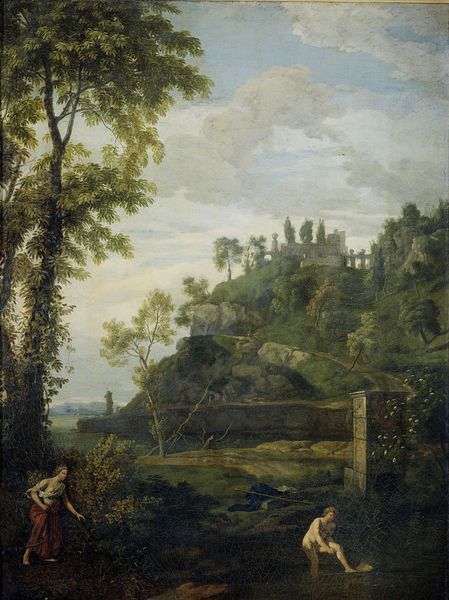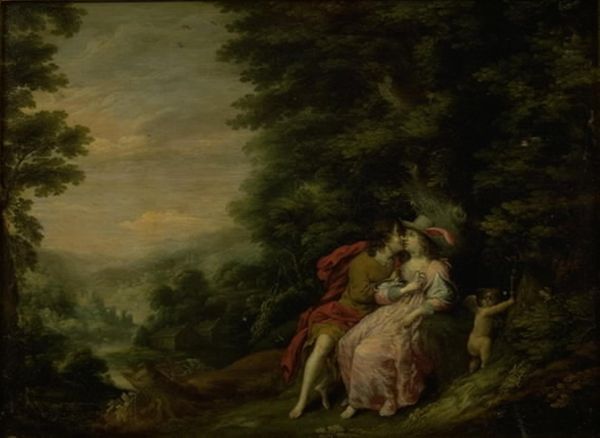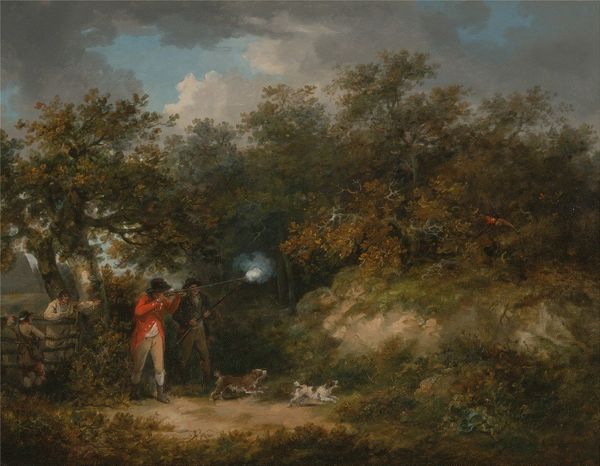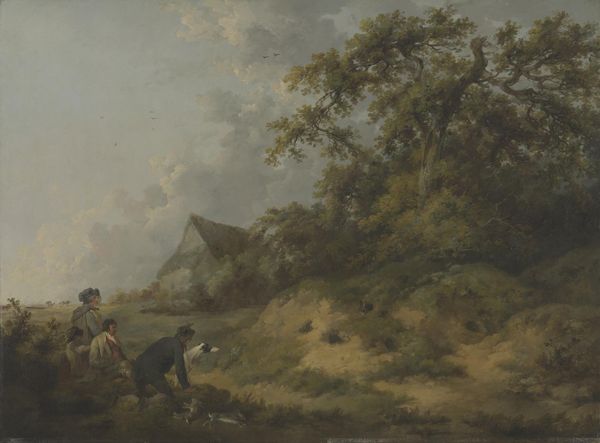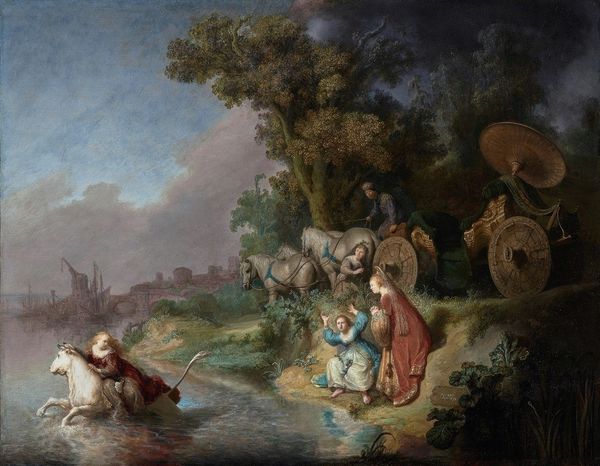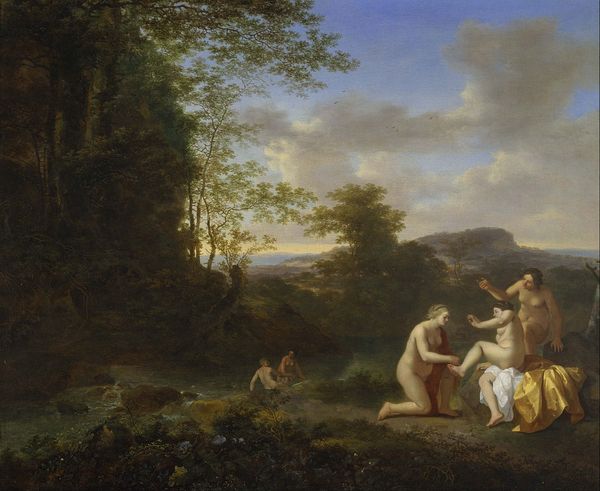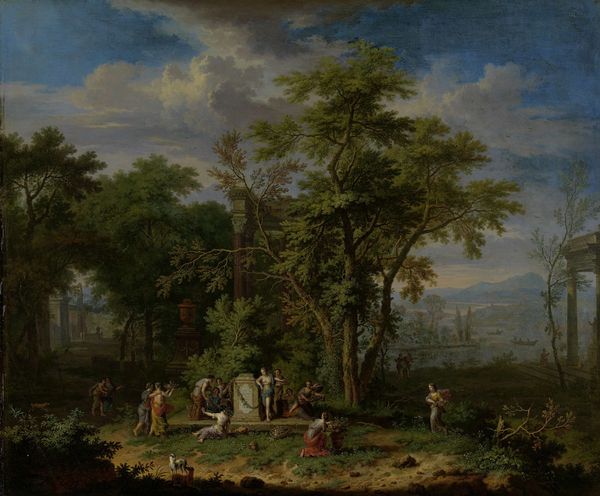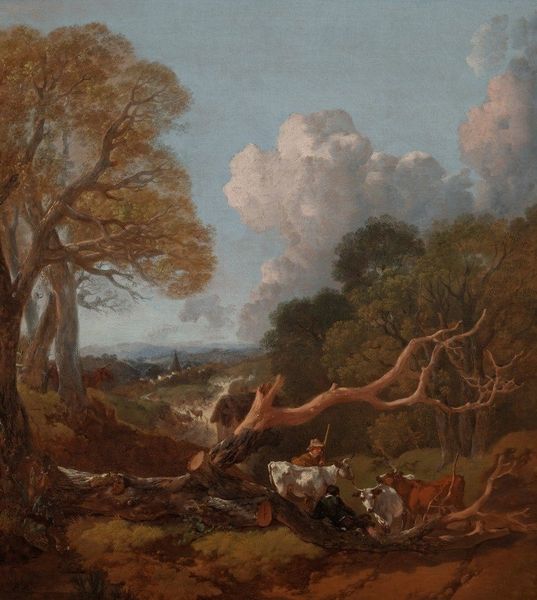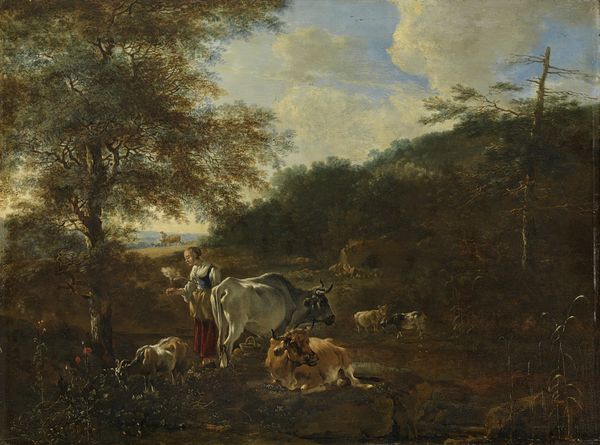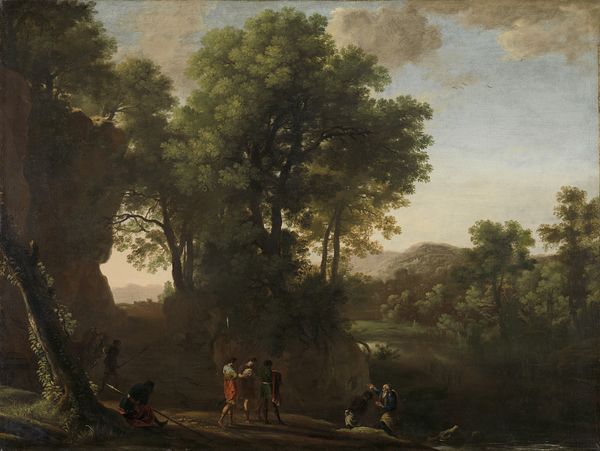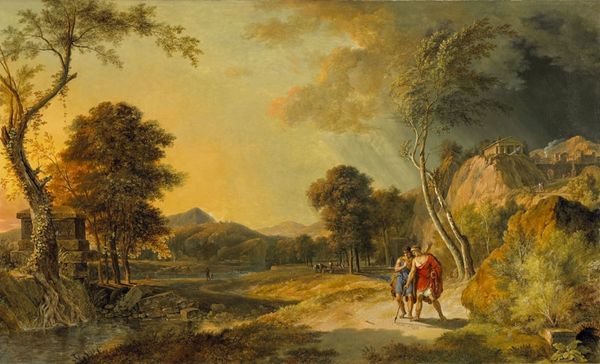
painting, oil-paint
#
fairy-painting
#
painting
#
oil-paint
#
landscape
#
oil painting
#
genre-painting
#
rococo
Copyright: Public Domain: Artvee
Curator: Oh, this feels like a secret revealed. Jean-Antoine Watteau's "Evening Landscape with Spinner", painted between 1713 and 1717 in oils, it's a fleeting glance into another world. What whispers to you first? Editor: The stark contrast. A woman illuminated, center stage, set against deep shadows and the suggestion of a landscape...It feels almost confrontational, like we're barging in on a private moment. But private for whom, exactly? Curator: Perhaps she is the landscape; think of the light as a sort of intimate unveiling. This Rococo master does enjoy the delicate and the transient, you know, like a dream on a summer eve. It's both fleeting and profound. She’s spinning thread but also a story, isn’t she? I wonder what tale it will weave. Editor: Exactly. And who's consuming the story? Look closer; do we see gendered labor disparities here? There's a figure in the shadows, crouched or perhaps recoiling, almost hidden, their labour, likely also textile production implied, but distinctly obscured and decidedly not centered. Is it guilt, shame, an admission by Watteau to class struggles of that time? Curator: Goodness! What sharp eyes. This does invite questions of power dynamics doesn’t it? The open landscape then seems to symbolize an impossible access. You've shattered my fairy painting ideals just a little! Editor: Perhaps a constructive shattering, right? Watteau can’t separate himself from his era, as much as we would perhaps like to situate the era’s visual arts solely within “leisurely pursuits.” Looking through a lens of inequality shifts it entirely, a Rococo critique perhaps. Curator: Well, I confess, I do prefer seeing a landscape imbued with gentle escapism, a place for pondering life’s delicate ironies and joyful pursuits. Editor: And that is the beauty, the painting can hold both. This interplay between what we are permitted to see and what remains cloaked is so suggestive. Curator: Right. So what starts as an almost innocent invitation spirals, revealing so many buried narratives, as stories often do. Editor: Agreed. And sometimes it’s less about finding concrete answers and more about wrestling with these complicated histories, revealing art's own kind of labour to produce ideological fictions.
Comments
No comments
Be the first to comment and join the conversation on the ultimate creative platform.
